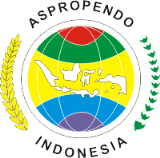STRATEGI MEMBENTUK WIRAUSAHA BARU DI KAMPUS
Abstract
The demand for entrepreneurship at a university is relatively low because there are still many students who are not interested in taking this opportunity. Courage to step is one obstacle to starting. The Entrepreneurship Development Program (PPK) is a strategy to motivate and nurture students to become independent new entrepreneurs. The purpose of this activity is to equip students in starting new businesses. The specific target of this activity is to produce seven new independent entrepreneurs among students and alumni. Methods for implementing socialization, education, practicum, and mentoring. The number of students in this program is as many as twenty people from the management, accounting, economic education, and marketing management study programs, Faculty of Economics, Manado State University. The results achieved were the facilitation of new entrepreneurs by as many as seven people with different products. Entrepreneurial students have their own businesses in the form of groups and individuals, including a coffee-inspired cafe booth, an EcoF Kitchen business with burger and hotdog products, and a pottery craft business. The motivation of new entrepreneurs is discussed in this paper. One of the strategies to change student behavior to become an entrepreneur is through a consistent and sustainable Entrepreneurship Development Program
Keywords: Entrepreneurship Development Program, New Independent Entrepreneur, Strategy
Full Text:
PDF (Bahasa Indonesia)References
Bae, T. J., Qian, S., Miao, C., & Fiet, J. O. (2014). The relationship between entrepreneurship education and entrepreneurial intentions: A meta-analytic review. Entrepreneurship: Theory and Practice, 38(2), 217–254.
Botsaris C., & Vasiliki V. (2014) Attitude toward entrepreneurship: Structure, prediction from behavioral beliefs, and relation to entrepreneurial intention. J Knowl Econ.
Brixiová, Z., Ncube, M., & Bicaba, Z. (2015). Skills and youth entrepreneurship in Africa: Analysis with evidence from Swaziland. World Development, 67, 11–26.
Din, B. H., Anuar, A. R., & Usman, M. (2016). The effectiveness of the entrepreneurship education program in upgrading entrepreneurial skills among public university students. Procedia - Social and Behavioral Sciences, 224, 117–123.
Dionco-Adetayo, E. A. (2006). Factors influencing attitude of youth towards entrepreneurship. International Journal of Adolescence and Youth, 13(1–2), 127–145.
Entrialgo, M., & Iglesias, V. (2016). The moderating role of entrepreneurship education on the antecedents of entrepreneurial intention. International Entrepreneurship and Management Journal, 12(4), 1209–1232.
Gailly, B., & Fayolle, A. (2015). The impact of entrepreneurship education on entrepreneurial attitudes and intention: Hysteresis and persistence. Journal of Small Business Management, 53(1).
Koe, W.-L., Sa’ari, J. R., Majid, I. A., & Ismail, K. (2012). Determinants of entrepreneurial intention among millennial generation. Procedia-Social and Behavioral Sciences, 40, 197–208.
Newman, A., Obschonka, M., Schwarz, S., Cohen, M., & Nielsen, I. (2019). Entrepreneurial self-efficacy: A systematic review of the literature on its theoretical foundations, measurement, antecedents, and outcomes, and an agenda for future research. Journal of Vocational Behavior, 110 ,403–419.
Obschonka, M., Silbereisen, R. K., & Schmitt-Rodermund, E. (2010). Entrepreneurial intention as developmental outcome. Journal of Vocational Behavior, 77(1), 63–72.
Rosique-Blasco, M., Madrid-Guijarro, A., & García-Pérez-de-Lema, D. (2018). The effects of personal abilities and self-efficacy on entrepreneurial intentions. International Entrepreneurship and Management Journal, 14(4), 1025–1052.
Soputan, G. J., Mamuaja, N. C., Ohy, J., & Krisnanda, M. (2019). Program pengembangan kewirausahaan di Fakultas Ekonomi Universitas Negeri Manado. Jurnal Kewirausahaan dan Bisnis, 24(14), 100–108.
Souitaris, V., Zerbinati, S., & Al-Laham, A. (2007). Do entrepreneurship programmes raise entrepreneurial intention of science and engineering students? The effect of learning, inspiration and resources. Journal of Business Venturing, 22(4), 566–591.
Turker, D., & Selcuk, S. S. (2009). Which factors affect entrepreneurial intention of university students? Journal of European Industrial Training, 33(2), 142–159.
Widayat, N. (2017). Entrepreneurial attitude and student’s business startup intention: A partial least square modeling. Jurnal Manajemen Dan Kewirausahaan, 19(1): 46–53.
Yang, Y., Choi, J. N., & Lee, K. (2018). Theory of planned behavior and different forms of organizational change behavior. Social Behavior and Personality: An International Journal, 46(10), 1657–1671.
Refbacks
- There are currently no refbacks.













